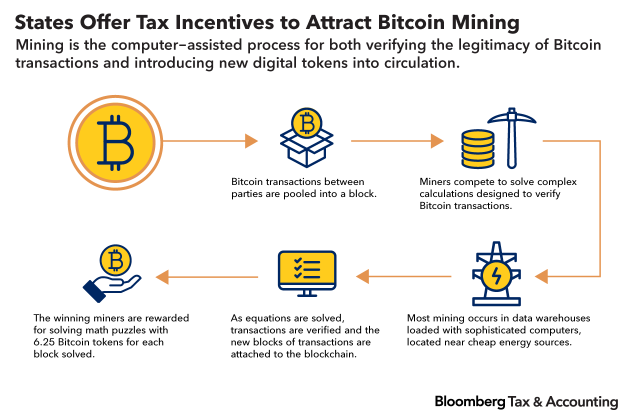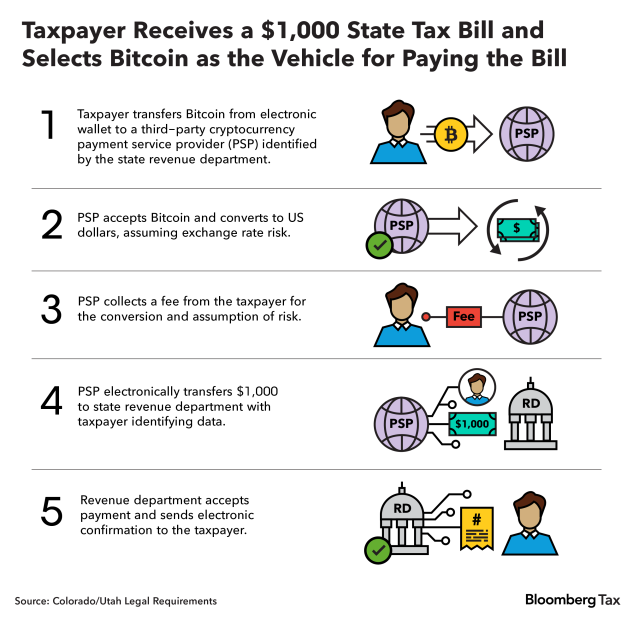Crypto drama spawns a slew of government consumer protection bills

The drama swimming in the cryptocurrency markets – punctuated by falling values and a drumbeat of scandals involving crypto banks, investment firms and exchanges – is generating a river of government legislation defining, licensing and regulating digital assets.
An analysis of actions across state capitols reveals more than 60 bills in 25 states that address some aspects of America’s love-hate relationship with blockchain technology, virtual currencies and non-fungible tokens — certificates of ownership for unique digital assets. Many of the measures will nurture the business climate for these assets with tax incentives and legal structures that draw them into broader commercial and fiscal codes. But a growing number of the bills seek to regulate businesses that invest, trade or manage digital assets.
To point to this shift, legislative analysts say states — especially New Jersey, New York and California — are shifting from a focus on business development to consumer protection.
“I see a mix of legislation that encourages cryptocurrency and digital assets, while also seeing bills that protect against fraud,” said Heather Morton, a policy analyst at the National Conference of State Legislatures. “I would say the majority of the bills are still focused on encouraging, but I’m seeing more protective legislation than before.”
Ryan Maness, a tax analyst at policy consulting firm MultiState, said lawmakers expressed broad optimism for digital currencies during the 2022 legislative cycle. Tax credit bills for Bitcoin mining were debated in half a dozen states. Colorado and Utah agreed to accept cryptocurrencies for payment of taxes and fees. The 2023 legislative cycle is likely to be shaped by the approximately 66% drop in the value of Bitcoin from its peak, and the bankruptcies of digital asset lender BlockFi, bank Celsius Network LLC, and – most conspicuously – exchange FTX.
“The question is,” Maness said, “how much will all the bad press affect the zeal of lawmakers? So will this move them toward the consumer protection side, or will they continue to encourage the industry?”
Political gridlock is difficult during the first few weeks of a state legislative session, but Maness said some of the licensing and consumer protection measures have a reasonable chance of passage, especially in northeastern states. Bills protecting cryptomining in Republican-controlled state legislatures could also catch fire this year. Bills with a distinctly libertarian flare — including an Arizona measure treating Bitcoin as legal tender — remain long shots.
Jersey’s proposed model
New Jersey is poised to enact perhaps the most comprehensive regulatory regime in the nation, with bills moving quickly through the state legislature.
The most prominent is the Digital Asset and Blockchain Technology Act, A2371/S1756, which creates an expansive licensing process for businesses that accept, store, trade, lend or issue digital assets. If passed, the bill would also impose a menu of registration and disclosure obligations on brokers, exchanges and securities firms, as well as arm the state with new enforcement powers.
Significantly, the bill would shift primary regulatory authority to the New Jersey Bureau of Securities from the Department of Banking and Insurance, said Christopher Gerold, who filed 23 enforcement actions against crypto and decentralized finance companies as head of the securities bureau between 2017 and 2021.
“By allocating cryptocurrency regulatory oversight to the agency, the bill recognizes the increasing difficulty of fitting rapidly evolving cryptocurrency businesses within the antiquated money transfer framework common in nearly every state and originally adopted to regulate check cashers and payment services,” Gerold said , who is now a partner at Lowenstein Sandler LLP in New York.
The bill passed the assembly in October with a vote of 72-1. It won unanimous support in the Senate Budget and Appropriations Committee on January 19.
New Jersey is also close to enacting a blockchain promotion program, A3288/S3142, which will promote awareness of decentralized digital technologies and recommend strategies for integration into government and commercial functions. The bill received unanimous support from the assembly in October last year.
A third bill would create the Virtual Currency and Blockchain Regulation Act, A1975/S1267, to provide certain incentives for virtual currency businesses to locate in New Jersey. Blockchain companies, including Bitcoin miners, would be exempt from sales tax on energy purchases and could claim tax credits against jobs created in the state. The bill will also require the state to develop a blockchain-based system to accept submitted tax returns. The measure was adopted by the assembly in October with a vote of 45-23.
New Jersey lawmakers will also consider A385/S3321, which would require the state to create a “digital payment platform” to support cash-heavy businesses without access to traditional financial institutions, such as cannabis retailers. The process would “facilitate regulatory compliance” and “allow sales tax payments to local municipalities,” according to the bill.
Over the Hudson
Across the Hudson River, New York lawmakers could expand the state’s already substantial BitLicense rules and the recent ban on Bitcoin mining, said John Olsen, New York state chairman of the Blockchain Association.
The 2015 BitLicence rules – which gave authority to the NY Department of Financial Services to license, regulate and discipline cryptocurrency businesses – paved the way for state crypto regulators. The state further irked the industry last November, when Gov. Kathy Hochul (D) approved a two-year moratorium on new permits for fossil fuel-powered mining and proof-of-work authentication methods to validate blockchain transactions.
Rep. Clyde Vanel (D) is sponsoring several bills that promote the industry and protect consumers. He has already introduced A954, which would create a task force to study the impact of widespread use of cryptocurrency on the state; A2599, which would form a task force to study options for a government-issued cryptocurrency; and, A2532, which would allow government agencies to accept crypto for payment of taxes and fees.
Vanel is also the author of an investor protection measure, A944, which would bring the offenses of virtual token fraud, illegal carpet pulling and private key fraud into the criminal code. New York, he said, needs to “create the right guardrails for investors as blockchain technology and cryptocurrency grow.”
Vanel and Olsen pointed to a possible anti-fraud bill from Attorney General Letitia James (D), who recently called for more aggressive crypto regulation.
“There have been too many abuses,” she said in her opening speech. “Too many seniors and working people have lost their pensions and their hard-earned money as a result of these risky products.”
Golden State Outlook
California is another state operating with a renewed sense of urgency to regulate digital asset companies following the collapse of FTX. Governor Gavin Newsom (D) vetoed a bill in September that would have established licensing requirements for crypto firms. Lawmakers have already drafted a compensation bill that addresses the governor’s concerns.
Assemblyman Timothy Grayson (D) introduced AB39, which would give the Department of Financial Protection and Innovation the authority to license, regulate and discipline digital financial assets starting in 2025.
“Obviously, licensing is the next natural step for this industry,” Grayson said. “And it is equally clear that until we take that step, Californians will continue to be vulnerable to widespread and preventable financial fraud.”
Mine Protection Bills
Several states are taking a friendlier approach. Missouri, Mississippi, Montana, and Oklahoma have introduced cryptomining protection laws.
The bills would allow small-scale Bitcoin mining in private homes and large-scale mining in areas regulated for industrial use. The proposed laws would also prevent local governments from imposing restrictions on mining through zoning or noise ordinances, and prevent utilities from creating discriminatory power rates aimed at mine operators.
Montana’s legislation, SB 178, takes an extra step. It would prevent the state and localities from imposing “additional tax, withholding tax, assessment or fee” when digital assets are used for payment.
The bills have drawn opposition from groups concerned about the potential loss of local control over mining facilities, which are often criticized for generating excessive carbon emissions and noise pollution. The Montana Environmental Information Center argues that the regulations of the state Public Service Commission and local governments should not be limited.
A few states are investigating tax incentives for commercial mining, which has expanded rapidly in the US after China officially banned Bitcoin mining in 2021.
Oklahoma is considering SB 1600, which would offer a generous tax credit toward large capital investments in new mining operations. Lawmakers will also consider SB 443, which would require the state to work with mining companies to remediate orphaned oil and gas wells, and harness the energy to operate mining facilities.
‘#Bitcoin is freedom’
A few states are pursuing measures that reflect some of the more libertarian ideology embraced by true crypto believers.
Several bills were introduced in January by Arizona Sen. Wendy Rogers (R), who is considered to be a conservative zealot and Bitcoin enthusiast. Last year she tweeted, “Centralized digital money controlled by central bankers is slavery. Decentralized #Bitcoin is freedom.”
Rogers sponsored SB 1235, which would require Bitcoin to be considered “legal tender,” and SB 1493, which would allow Arizona to pay state employees in virtual currency. Another, SB 1239, would allow Arizona to accept cryptocurrency for any tax, fee or fine payable to the state. Rogers also proposed SB 1240 and SCR 1007, which would require a constitutional amendment stating that virtual currency is exempt from state taxation.
Colorado and Utah are the only states that currently accept crypto for tax payments.
Wyoming, another state with a rich digital currency history, will consider a plan to create a state-backed stablecoin – a type of crypto backed by fiat currency. The bill, SF 127, would create the Wyoming stable token, “a virtual currency representing and redeemable for one US dollar.”

























